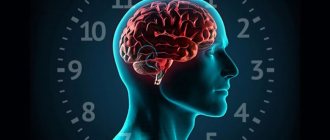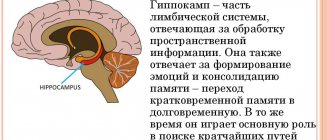Affective personality disorders are understood as a group of mental diseases accompanied by disturbances of affect.
They are characterized by instability of mood, its decline (depression) or rise (manic state). At the same time, the intellectual and motor activity of the human brain changes. Affect is a vivid manifestation of feelings and emotions: facial expressions, gestures, anger, joy, etc. It can be adequate, that is, corresponding to the situation, or inadequate, in which behavior does not coincide with the thoughts expressed (an individual laughs when talking about the death of a loved one person).
Service price
- HOSPITAL Day hospital5 000
- Day hospital with intensive care8,000
- 24-hour hospital (all inclusive, cost per day) 12,000
- 24-hour hospital (all inclusive, cost per day). Single occupancy24,000
- 24-hour hospital (all inclusive, cost per day). Single occupancy in a superior room 36,000
- Primary family counseling for relatives of patients undergoing inpatient treatment free of charge
- Group psychotherapy for relatives of patients undergoing inpatient treatment free of charge
- Group psychotherapy for 24-hour and day hospital patients free of charge
- Individual post for a hospital patient (if indicated)6,000
Organic personality disorder —changes in personality and behavior due to damage to brain tissue.
Any damaging effect on the nervous system causes changes in the mental state. But for a personality disorder to develop, the harmful effects must be long-lasting or leave behind irreversible changes in the form of neuronal death. atrophy of brain tissue, growth of neoplasms (cysts and brain tumors), impaired blood supply to the brain.
Personality disorder
In some cases, you may not realize that you have a personality disorder because the way you think and behave seems natural to you. And you may blame others for the problems you face.
It is important to remember that such feelings and behavior are very difficult to live with. Such a person should receive qualified medical care and support.
Personality is a way of thinking, feeling and behavior. This is what distinguishes a person from other people. The formation of personality is influenced by upbringing, personal experience, environment, life situations and hereditary characteristics. Personality formation occurs in the first year of life. By the age of 3, the personality is practically formed. Then you can only carry out personality correction. Typically, a person's personality remains unchanged.
A personality disorder is a way of thinking, feeling and behaving that deviates from cultural expectations, causing imbalance and problems functioning in society.
Description of some disorders
We cannot describe all manifestations of a personality disorder. However, we will try to talk about the most common ones that people contact us with most often.
Family members can play an important role in changing the situation and correcting it. Together with your doctor, you need to find the most effective ways to help and support. Treatment for a personality disorder should always involve the family. Often during therapy, this can cause anxiety among family members. Family members may find it helpful to talk with their healthcare provider to help them cope with any difficulties they may have.
It is a type of mental disorder in which there is an unhealthy way of thinking, functioning and behaving. It is difficult for a person with a change in perception to adequately perceive situations and people. Accordingly, they have their own opinion about people and attitude towards them. This perception causes serious problems and limitations in relationships, work and school.
Paranoid personality disorder
Thoughts, sensations and experiences associated with this mental state may manifest themselves in the following ways.
Manifestations of paranoid disorder
- It's hard to trust people, even your friends and family;
- Difficulty trusting other people, believing that they will take advantage of you or take advantage of you;
- Problems with relaxation, constant tension;
- Feeling threatened or in danger in everyday situations when others do not see it;
- The feeling of hidden subtext in innocent remarks or casual glances.
This can become a significant problem in interpersonal relationships and create difficulties in communication. This usually provokes a decrease in the quality of family and work relationships.
Schizoid personality disorder
Many people with schizoid personality disorder can function normally. They lack a psychotic component. However, as a result of this condition, a person often experiences specific feelings that affect the quality of his life. In some cases, such symptoms may indicate the initial phase of the formation of schizophrenia or schizotypal disorder.
Manifestations of schizoid disorder
- Lack of close, trusting relationships with others;
- Difficulty making decisions without outside help;
- The desire to be alone with your thoughts;
- Lack of enjoyment from most activities;
- Problems with choosing a profession;
- Lack of interest in sex and intimacy;
- Having emotional coldness towards others.
Histrionic personality disorder
Most people like to receive compliments or positive feedback about their actions. But if you are so dependent on being noticed or seek approval so much that it affects your daily life. In such cases, a diagnosis of histrionic personality disorder may be made.
Manifestations of hysterical disorder
- an uncomfortable feeling in the company; you are not the center of attention;
- feeling the need to entertain others;
- the need for constant approval of others, a feeling of dependence on this;
- making hasty decisions;
- need for flirting;
- desire to dress extravagantly to be the center of attention;
- have a reputation for being dramatic, emotional;
- are easily influenced by others.
There are quite a lot of variants of such disorders, especially those invented by psychologists. We cannot describe them all within the scope of this site. If you suspect there is a problem, don't worry about it. Go to a good psychiatrist for a consultation, get examined, and you will know everything about your personality type. And if correction is needed, the doctor will help you choose the right path to this.
Causes
Organic personality and behavior disorder develops after mechanical damage to the brain due to:
- Traumatic brain injuries.
- Chronic alcohol and drug poisoning.
- Prolonged oxygen starvation.
- Disturbances of blood flow to the brain. Strokes and cerebral infarctions.
- Epilepsy.
- Nervous system infections.
- Cerebral palsy.
- ADHD.
- Atrophy or neoplasm of brain tissue.
- Encephalopathies of any origin.
Symptoms
These signs should be observed for a long time (at least six months):
- Unstable mood , rapid change of emotions (from tears to laughter in an instant), attacks of melancholy-angry mood (dysphoria), a tendency to an increased stupid and blissful mood (euphoria) without external reasons for this.
- Loss or decrease in the ability to foresee the consequences of one's actions. Incontinence of drives and needs.
- Difficulty learning.
- Decreased memory and attention.
- Thinking in detail (getting stuck on little things).
Kinds
Psychiatry classifies as affective disorders all mental disorders that are based on frequent changes in mood in the direction of its increase or decrease.
Let's look at the ones that occur most often:
- Depression is characterized by a constant feeling of hopelessness and despondency for at least 2-3 weeks. Hobbies and past interests do not bring joy. A serious illness that requires referral to a specialist.
- Dysthymia is a chronic type of depression that results in daily depressed mood. The symptoms are not as severe as those of a clinical depressive episode. This diagnosis is made if despondency and apathy do not leave a person for 2 years or more.
- Bipolar disorder is an affective mood disorder that was previously known as manic depression. It is characterized by 2 main phases: depressive and manic. They can alternately replace each other or mix into one state. In this case, the person exhibits signs of depression with motor activity or delusional thoughts.
- Cyclothymia is a series of constant changes in mood and physical activity, without depression or manic agitation. At the same time, a person is quite capable of maintaining social activity, even experiencing difficulties with well-being. Without treatment, it can progress to bipolar disorder.
- Manic syndrome - this type of disorder is characterized by an excited state, euphoria, and motor activity. Rapid speech, insomnia, and confusion of thoughts are often observed. It occurs in the form of attacks, the duration of which depends on the stage of the disease.
Anxiety disorders are also identified. Its main feature is a constant feeling of restlessness and anxiety for no apparent reason. This group includes various phobias and panic attacks.
Treatment
Three directions of treatment:
- Therapy of the underlying disease - organic damage to the nervous system.
- Restoration of not yet dead, preserved nerve cells.
- Psychotherapeutic work aimed at developing a critical attitude towards one’s condition, learning to control emotions and cognitive training.
- Psychological work with the patient’s loved ones.
Medication, physiotherapeutic, psychotherapeutic methods, biofeedback therapy, diet therapy, reflexology, exercise therapy and other methods are used.
Diagnostics
Psychiatrists and psychotherapists also note that the priority is to identify the internal experiences of a person that torment him. They will need to be eliminated. But first, identify the reasons behind them. Doctors specializing in the cognitive-behavioral field usually point out to patients their mistakes in life, teach them to see prospects for the future, especially with regard to inappropriate behavior, point out to patients the futility of life's realities and try to instill in them a more suitable behavioral option.
Patients with behavior prone to dramatic behavior (it can be described as borderline, asocial, staged, narcissistic behavior) need an active, sometimes involuntary, harsh, prohibitive attitude of a psychotherapist. Sometimes people with antisocial personality disorder cannot receive outpatient treatment; they must be forcibly placed in specialized hospitals.
There are two groups of psychotherapists who treat borderline patients receiving treatment for personality disorders. Some are confident in the effectiveness of occupational therapy treatment, while others are inclined to believe that the patient must be treated now. In both cases, treatment of patients is often stopped for a long time because the patient feels anger towards his doctor, when he is suicidal or has a psychotic decompensation and needs to be urgently hospitalized.
But such aggressive, in some way, cruel tactics towards the patient can be replaced with a more gentle, bright one, treat the patient with understanding, that is, find a friendly approach.
Duration of psychotherapeutic treatment
Psychotherapeutic treatment for personality disorder usually lasts a very long time, for several years.
But, despite such a difficult, long path to improving the patient’s condition, improvements are still observed, and a lot, but there is almost no control over the data. Therefore, problems still remain unresolved in terms of the effectiveness of diagnosis and basic psychotherapeutic approaches to treatment and identification of the sources of the disease.
Current recommendations for the treatment of personality disorder include comprehensive neurometabolic therapy. For example, patients with borderline disorders with frequently changing moods and lack of control often find relief from taking tricyclic antidepressants and MAO inhibitors. For patients with disorders of the cognitive process and adaptation, components of aggression and obsessions, antipsychotics are recommended in small dosages.










